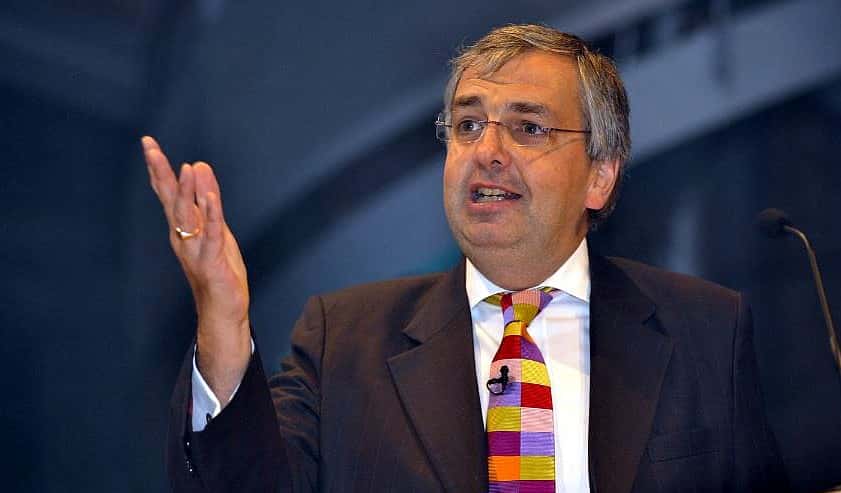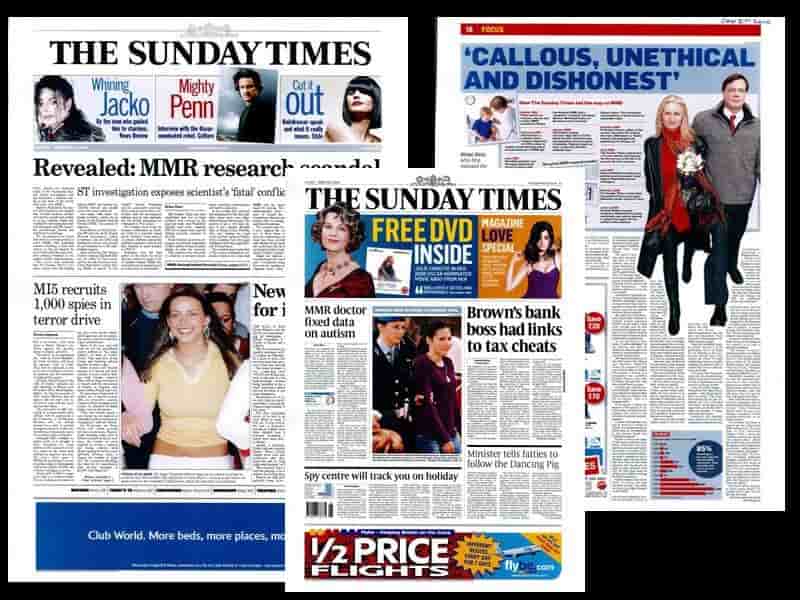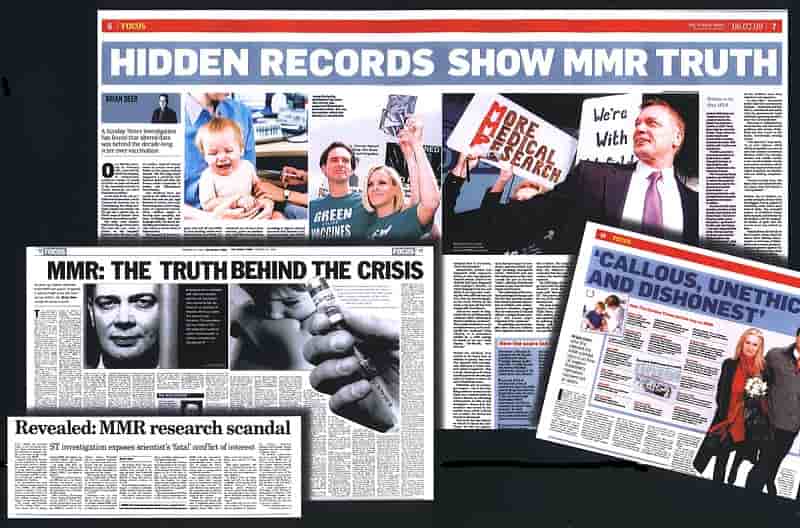
COMMENT BY BRIAN DEER
May 11, 2022
Association for International Broadcasting Awards
How TV producers can grab AIB awards
So you want to win an award from the Association for International Broadcasting, do you?
Well, let me show you how.
Hi. My name’s Brian Deer, and I know a thing or two about winning awards.
Whether it’s my two British Press Awards for my Sunday Times investigations, book prizes and medals for my nonfiction work, or my honorary doctorate for my “commitment to truth,” I’ve donned a few black ties and tuxedos in my time.
I’ve even been shortlisted for a Royal Television Society award — only losing out on the night to the BBC after they entered a Panorama programme about paedophiles.
The little Association for International Broadcasting’s AIB judges have also seemed impressed by my reporting.
After I spent more than twenty years investigating the anti-vaccine movement, the association’s 2021 awards for “Investigative Documentary of the Year” was won by the ninety-minute film “The Anti-Vax Conspiracy” entered by the UK’s Channel 4.
So let me share with you now Six Secrets of Success — the formula behind that winning entry.
AIB’s documentary entries
The Association for International Broadcasting recently held an online masterclass, including a session on investigative reporting.
I participated briefly from my desk in London and was impressed by the quality of journalism being achieved by some producers who enter the awards. I know how tough it can be to get an original story and present it in a manner that grabs.
But to be honest, I felt, much of this labour by programme-makers might never get the recognition it deserves. Investigations are expensive, can take months or even years and, if they’re really top-class, may carry risks.
So I felt a twinge when I learnt from Simon Spanswick, who hosted the masterclass, that six other projects were beaten by “The Anti-Vax Conspiracy” as the association’s investigative documentary of the year.
I know what it’s like to hold your breath for acknowledgments that may help you carry forward future projects.
Let me then tell you the hidden story about the success behind that programme — and my discovery of an easier approach.
AIB awards made simple
To cut to the chase, here’s my six-point plan — the dos and don’ts I’ve learnt in my dealings with Channel 4 and the Association for International Broadcasting.
(1) Don’t do the key reporting yourself
Let’s face it, the fun part of TV production is sucking up pictures and splicing them together, with machines doing all the heavy lifting. So follow the method of “The Anti-Vax Conspiracy” and plagiarise the work of a reporter and author like me, as was the dominant technique with the Channel 4 programme, first broadcast in June 2021. The Association for International Broadcasting won’t spot what you’ve done – or if it does, won’t give a damn.
(2) Do pad it out with social media staples
Be brave, but not reckless. So, once you’ve found an investigation you want to lift from a journalist, sprinkle it with sync spotted on YouTube or Facebook, and reach out to a few rent-a-quote usual-suspect interviewees (especially if this involves foreign travel). You can be sure most viewers won’t have seen the clips you find, or heard your subjects saying it all before.
(3) Don’t reveal where you got your best material
Originality is important for success in awards, so include in your creation some statement or suggestion that the material you plagiarised was your own. In the case of Channel 4, they scripted a line in “The Anti-Vax Conspiracy” implying that they’d made shocking discoveries about fraud by a doctor named Andrew Wakefield — who featured about every sixty seconds, from start to finish — which they’d cunningly harvested from my work. Then they contrived to avoid even naming me in the programme, covering up what they’d done.
(4) Do say nothing if challenged by your victim
This is crucial. You’re likely to be working in collaboration with others, and you need to guard against offering contradictory excuses which might be invoked as evidence of dishonesty. My advice is to leave it to the managerially most senior to cover your tracks. If in doubt, say nowt. Stay shtum. With “The Anti-Vax Conspiracy” it was a guy called Steve Boulton, a Channel 4 commissioning editor, who coordinated the production team’s response to my complaint, making it harder to pin down who was lying.
(5) Do agree with colleagues it’s your victim’s fault
Channel 4 has long been good at things like this. When encountering criticism, it goes on the attack. “Defend like a plaintiff” it’s legal chief once explained to me. So, after telling me nothing about “The Anti-Vax Conspiracy” (which I only found out about from Tweets during broadcast), Boulton fronted the lie that I’d been invited to participate and had turned down the producers’ offer. True, it’s dishonest, but gaslighting the person whose material you stole will help you to feel better about yourself.
(6) Don’t worry if you’re caught
TV broadcasters usually have money to hide behind, and the Association for International Broadcasting has their backs. So, when I pointed out to Simon Spanswick, its chief executive, that my reporting was plagiarised he made clear the association would do nothing about it unless I stopped work on journalism and risked losing my home by launching and winning a complex lawsuit that would take years to resolve — and potentially run up millions in costs.
AIB’s Spanswick wrote to me:
The programme was entered into our 2021 awards by Channel 4 Television along with a range of other commissioned programmes from its Dispatches and its other strands. The Anti-Vax Conspiracy was submitted “as broadcast” and it went through the shortlisting process and then onto our panel of judges across the world. It was this international jury that assessed this together with the other half dozen programmes that had been shortlisted in the investigative documentary category. This panel of experts decided that the programme was the best of the selection. The jury looks at each programme in isolation, just as a viewer or listener would.
We have dealt with Channel 4 and its senior executives for many years – the AIBs have been in existence for 18 years and this Association for almost 30. The AIB is satisfied that Channel 4 and its executives act in the interests of the network’s audiences and that the broadcaster operates appropriate pre- and post-transmission systems to ensure that programmes which the network commissions and broadcasts meet all their editorial requirements and standards.
Should you decide to pursue the matter through the courts, and judgement is made in your favour, this Association will review the award that was made to The Anti-Vax Conspiracy. Similarly, should the UK media regulator receive a complaint from you and decide that it is within its remit to investigate [it isn’t], and should such an investigation rule in your favour, then we will review the award.
I’ll admit I’d never heard of the Association for International Broadcasting — a UK entity which appears to use its awards for publicity purposes.
But if you want to know more, click the links below identifying the programme’s executive producers Dinah Lord and Eamonn Matthews, producer Flora Bagenal, and the companies Caravan Media and Quicksilver Media.
So go for it! Cheat. You can’t lose.
Caravan Media’s Dinah Lord fools viewers for profit
Flora Bagenal silent on plagiarism complaint
Analysis of plagiarism in “The Anti-Vax Conspiracy”
Quicksilver Media dogged by plagiarism charge
The impact of my investigation on UK MMR uptake
READ HOW DEER’S WAKEFIELD
INVESTIGATION WAS CHECKED



